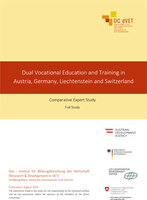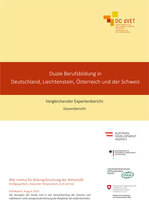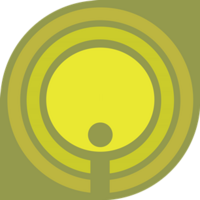Präsentationen, Studien, Infografiken und Broschüren
Text
Präsentationen, Studien, Infografiken und Broschüren
Text

For several years, dual vocational education and training (dual VET) has attracted major international interest. Thanks to practice-oriented programmes which are relevant for the labour market, young people who have graduated from dual systems succeed particularly well in entering the world of work. Dual VET is therefore regarded as a major reason for the low youth unemployment rate in these countries.
Where other countries want to benefit from the success factors of dual systems, it is important to obtain information about these systems and learn from them. This study aims to present the core elements of the dual systems of Germany, Liechtenstein, Austria and Switzerland, describe the things they have in common and their differences, and refer to important reference documents. This study aims to serve as a source of information and basis for discussions for institutions and people that plan and implement VET projects and programmes to find out which of these elements can be implemented in what form in other contexts.

Seit einigen Jahren erfährt die duale Berufsbildung zudem ein großes internationales Interesse. Dank den praxisbezogenen und arbeitsmarktrelevanten Ausbildungen gelingt Jugendlichen aus dualen Systemen der Einstieg in die Arbeitswelt besonders gut. Duale Berufsbildung wird daher als wichtiger Grund für die geringe Jugendarbeitslosigkeit in diesen Ländern betrachtet.
Wenn die Erfolgsfaktoren der dualen Systeme für andere Länder nutzbar gemacht werden sollen, ist es wichtig, diese Systeme zu kennen und von ihnen zu lernen. Das Ziel der vorliegenden Studie ist es, die Kernelemente der dualen Systeme von Deutschland, Liechtenstein, Österreich und der Schweiz darzustellen, ihre Gemeinsamkeiten und Unterschiede herauszuarbeiten und auf wichtige Referenzen zu verweisen. Die Studie soll Institutionen und Personen, die Berufsbildungsprojekte und -programme planen und umsetzen als Informationsquelle und Grundlage für die Diskussion, welche Elemente sich in welcher Form in anderen Kontexten umsetzen lassen dienen.

Im Projekt QYCGuidance wurden Materialien und Tools entwickelt, die Bildungs- und Berufsberater/innen dabei helfen, die eigene Medienkompetenz in Zusammenhang mit der Nutzung moderner Medien zur Bildungs- und Berufsberatung, zu evaluieren. Diese Tools sollen auch Ratsuchende (insbesondere Jugendliche) bei der Entwicklung von Kompetenzen zur Selbstinformation unterstützen. Konkret wurden Qualitätsindikatoren für Medienkompetenz in der Bildungs- und Berufsberatung, ein Online „Self-Assessment-Toolkit“ sowie ein Leitfaden für Berater/innen erstellt. Das Projekt wurde im Programm Erasmus+ durchgeführt und vom Bulgarischen Partner Student Computer Art Society (SCAS) koordiniert. Weiters waren Einrichtungen aus Österreich (ibw), Bulgarien, der Türkei und Litauen am Projekt beteiligt. Das ibw war im Rahmen des Projektes insbesondere für die Entwicklung eines Leitfadens verantwortlich, der Berufs- und Bildungsberater/innen darüber informiert, wie Jugendliche bestmöglich in der Nutzung moderner Medien zur Selbstinformation unterstützt werden können.
![]()
Dieses Projekt wurde mit Unterstützung der Europäischen Kommission finanziert.
Die Verantwortung für den Inhalt dieser Veröffentlichung trägt allein der Verfasser;
die Kommission haftet nicht für die weitere Verwendung der darin enthaltenen Angaben.
The QYCGuidance project aimed to develop materials and tools that help educational counsellors and career guidance officers develop and evaluate their own media competence relating to the use of modern media for educational counselling and career guidance. They also help them support people seeking guidance (especially youths) in developing competences so they can gather information themselves. It aimed to produce concrete results in the form of quality indicators for media competence in educational counselling and career guidance, an online self-assessment toolkit for guidance officers, and a guide for guidance officers. The project was implemented as part of the Erasmus+ programme and coordinated by the Bulgarian partner Student Computer Art Society (SCAS). Additonally other partners from Austria (ibw) Bulgaria, Turkey and Lithuania were involved in the project too. In this project, ibw was responsible especially for developing a guide that informs guidance officers how young people can be best supported in the use of modern media to gather information themselves.
![]()
The European Commission support for the production of this publication does not constitute an
endorsement of the contents which reflects the views only of the authors, and the Commission
cannot be held responsible for any use which may be made of the information contained therein.
Kontakt/Contact: Wolfgang Bliem
Projektzeitraum/Project duration: 2014 - 2016